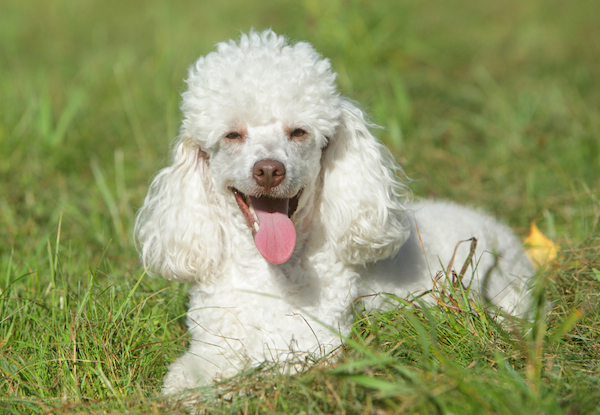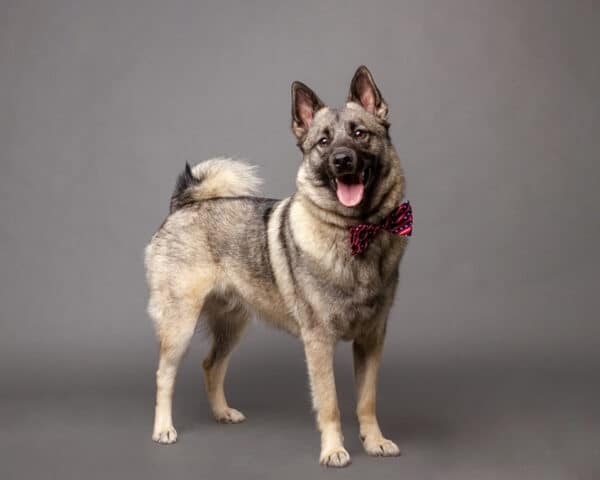Quick Facts
- Weight: 15 – 17 pounds (6.80 – 7.71 kg)
- Height: 11 – 15 inches (27.94 – 38.10 cm)
The Look of a Miniature Poodle
The Miniature Poodle has a graceful, small- to medium-sized frame with a rounded skull, a long head and muzzle, dark oval eyes and wide, close-hanging ears. They have docked tails (usually) and compact, webbed feet. The coat is sometimes curly, sometimes corded or ribbed, and can be any solid color. Grooming styles include the “pet clip” (short all over), the “Continental clip” (the hindquarters shaved, half of the tail and the upper half of the legs) “English saddle clip” (same as the “Continental Clip” except the hindquarters are not shaved). Most show dogs appear with the “Continental Clip.”
Traits
- Well-groomed, curly coat
- Elegant and regal
- Adaptable and easygoing
- Loving and friendly
- Protective and (sometimes) jealous
Ideal Human Companion
- Singles
- Seniors
- Families with older children
- Active, sporty types
What They Are Like to Live With
Miniature poodles are clever and lively household companions, adaptable to their environments and are fairly easy to train—it’s no surprise that they were once very popular circus dogs. Overall, they are amusing, eager to please and a lot of fun to be around.
Poodles are generally active and agile. They are happiest with daily walks and lots of outdoor play. Without enough attention and activity, they can get bored, agitated, restless and (sometimes) destructive. Also, if you can give your Poodle the opportunity to frolic in water, by all means do.
Poodles do not like to be left alone for hours on end. They love being around people and are able to form bonds with each member of the family, as opposed to bonding with just one person. Poodles are ideal family dogs, being both patient and playful with children—though Miniature Poodles can be slightly less patient with small children. They also make superb watchdogs, barking zealously when strangers approach the home.
Things You Should Know
Poodles may look dainty and demur, but in truth, these are high-stamina dogs with a stellar range of skills, including agility and obedience. Your pretty Poodle could be a sporty competitor in addition to a beautiful show dog.
As a Miniature Poodle owner, you must be ready to groom: They need to be clipped and bathed regularly. On the plus side, they don’t shed.
Miniature Poodles can live as long as 15 years. Though a relatively healthy breed, common issues can include hip dysplasia, allergies, skin conditions, ear infections and cataracts.
Miniature Poodle History
Though Poodles have lived in Europe for centuries, no one knows for sure where they originated. Some claim Germany, but the consensus seems to be France, where they are considered a beloved national breed. Descended from the now-obsolete French Water Dog, the Poodle (most likely named from the German word Pudel, or “plays in water”) was used to retrieve waterfowl for hunters. Poodles were prized for their intelligence and good manners, eventually being used in circuses and dog shows and, of course, as companions. The Standard Poodle is believed to be the oldest of the three Poodle versions. Miniature Poodles and Toy Poodles were most likely bred from the larger Standard Poodles, but all three are judged in the same categories.





